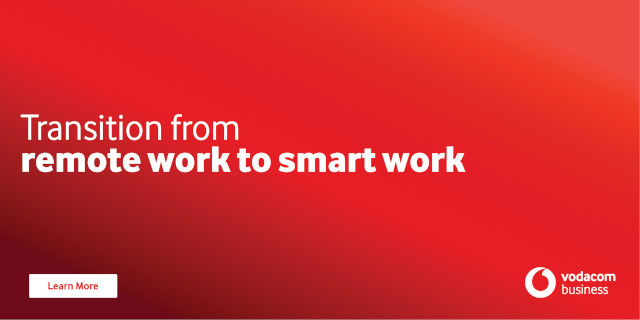Business News sponsored by Vodacom Transformation of Work:
Human Rights Day, celebrated in South Africa on 21 March in remembrance of the Sharpeville massacre, commemorates the adoption of the Universal Declaration of Human Rights (UDHR) by the United Nations General Assembly in 1948. Underpinning many of the rights specified in the UDHR is the ability to access financial services and products that support financial self-determination.
Financial inclusion – the access to affordable and appropriate financial services for all individuals and businesses – is a fundamental enabler of human rights and sustainable development. The UDHR and the UN Sustainable Development Goals (SDGs) both emphasise the importance of financial inclusion in promoting human dignity, equality, and economic development.
Financial inclusion supports the UDHR's principle of economic and social rights by providing individuals with the means to improve their livelihoods and escape poverty. Access to financial services such as savings accounts, credit, insurance, and payment services empowers people to invest in education, healthcare, and entrepreneurship, thereby enhancing their economic opportunities and well-being.
Jonathan Holden, COO at leading digital wallet provider SOLmate, says, “Article 23 of the UDHR specifically recognises the right to work, to free choice of employment, and to just and favourable conditions of work, all of which are facilitated by access to financial services that enable individuals to start businesses or access job-related training. Innovative new financial products such as digital wallets hold the key to a more empowering form of financial inclusion.”
A digital wallet, also known as a mobile wallet, provides a secure and convenient way to make payments, transfer money, and manage financial transactions. One of the key advantages of digital wallets is their affordability compared to traditional bank accounts. Maintaining a bank account can be prohibitively expensive for the unemployed or individuals living below the poverty line. Digital wallets offer a cost-effective alternative, enabling underserved populations to access essential financial services, including payments, savings, and remittances.
In rural areas, where many residents rely on remittances from family members working in urban areas or abroad, digital wallets can simplify the process of receiving and sending money. By providing easier access to financial services, digital wallets help rural residents save, invest, and eventually start small businesses, which also benefit from access to financial products. This can contribute to local economic growth and poverty reduction.
Holden continues, “Moreover, financial inclusion contributes to the UDHR's principles of equality and non-discrimination by ensuring that marginalised and vulnerable groups, including women, youth, and rural populations, have equal access to financial services. By overcoming barriers such as distance, cost, and documentation requirements, financial inclusion promotes inclusive economic growth and reduces inequalities.”
A recent study by the World Bank has even found that the effects of cash transfers in curbing violence against women and children are overwhelmingly positive and comparable to stand-alone violence prevention interventions. Researchers hypothesise that this comes about as a result of increased women empowerment and social status when they are the recipients of transfers, strengthened support networks, and reduced conflict related to poverty and food insecurity.
Digital wallets also have the potential to empower small businesses through improved efficiency, expanded access to capital, and enhanced economic growth. With low-to-no transaction costs, mobile money provides a way for small businesses, particularly those in underserved areas, to access formal financial services without overheads. It enables them to participate in the digital economy, establish financial identities, and gain access to savings, credit, and insurance services and reduce the risk associated with dealing in cash.
Financial inclusion aligns with several of the UN SDGs. By expanding access to financial services, countries can advance efforts to eradicate poverty and promote inclusive economic growth. For example, microfinance initiatives enable poor individuals to access credit for income-generating activities, while mobile banking services provide rural communities with convenient and affordable means to save and transfer money.
Access to financial services enables individuals to better afford healthcare expenses and insurance coverage, improving health outcomes and reducing financial vulnerabilities associated with illness or emergencies. Additionally, it facilitates investments in education by enabling families to save for school fees and access affordable credit for educational expenses, thus promoting lifelong learning and skill development.
Holden concludes, “By expanding access to financial services, countries can empower individuals, reduce inequalities, and foster inclusive and sustainable development. Digital wallets are a low-cost, convenient, safe and secure alternative to traditional banks, and are tailor-made for those previously excluded from traditional financial services. Through the provision of accessible, easy-to-use products, we are dedicated to driving financial inclusion and improving the lives of individuals and businesses.”






